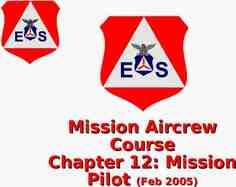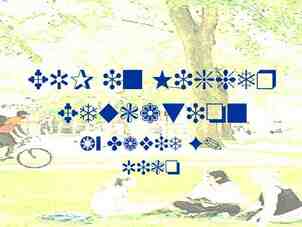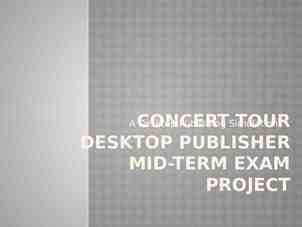2021-2022 Financial Aid Workshop Financial Aid Office California
32 Slides2.12 MB

2021-2022 Financial Aid Workshop Financial Aid Office California State University, San Bernardino

Topics to be Covered What is the FAFSA? Obtaining a FSA ID FAFSA Application DREAM Application Types of Financial Aid Cal Grant Scholarship Application

What is the FAFSA? The FAFSA is the Free Application for Federal Student Aid www.fafsa.ed.gov 2021-2022 available starting October 1st Priority Deadline: MARCH 2 Used for federal, state and institutional aid Grants, Work-Study and Federal Student loans

Collects demographic and financial information Information used to calculate the expected family contribution (EFC) Colleges use EFC to award financial aid Available in English and Spanish

Federal Student Aid ID FSA ID-a username and password-you will need to have a social security number to obtain a FSA ID. Each person must obtain a FSA ID , if you cannot obtain a FSA ID send in signature page Save FSA ID to file the FAFSA, make corrections and access other federal websites. Only the owner of the FSA ID should create and use the account. Never share your FSA ID

Various Application Formats FAFSA on the Web (FOTW) myStudentAid mobile app Paper or PDF FAFSA FAFSA on the Phone (FOTP) FAA Access to CPS Online

*NEW* myStudentAid Mobile App You can now complete your FAFSA on the myStudentAid mobile app Download through your appstore or Google Playstore

FAFSA Application Step 1 - Student Demographics Step 2 - Student Financial Information Step 3 - Dependency Status Step 4 - Parent Information Step 5 - Student Household Step 6 - School Selection Step 7 - Signatures

Dependency Status FAFSA asks questions to determine dependency status for Title IV federal student aid (not IRS) purposes: If all “No” responses, student is dependent If “Yes” to any question, student is independent

IRS Data Retrieval Tool Allows for certain tax return information to be transferred from the IRS database Participation is voluntary and student chooses whether or not to transfer data to FOTW IRS will authenticate taxpayer’s identity If tax record is found, IRS transfers information to populate the FAFSA Reduces documents requested by financial aid office

Frequent FAFSA Errors Social Security Numbers (SSN) If parents do not have a SSN please put 000-00-0000 under their information Divorced/widowed/remarried parental information Income earned by parents/stepparents Untaxed income U.S. income taxes paid Household size Number of household members in college Real estate and investment net worth

FAFSA Processing Results

Email Notification of SAR Processing If valid email address is provided on FAFSA Provides access to electronic SAR at www.fafsa.gov Review for any errors in order to make corrections.

What is Financial Aid? Financial aid consists of funds provided to students and families to help pay for postsecondary educational expenses

What is Cost of Attendance (COA)? Estimation of expected costs Direct Costs Indirect Costs Tuition and fees Transportation Room and board Miscellaneous personal expenses Books and supplies

What is Expected Family Contribution (EFC)? Measurement of student’s and family’s ability to pay postsecondary educational expenses Student contribution Parent contribution (for dependent students)

What is Financial Need? Cost of attendance (COA) – Expected family contribution (EFC) Financial need

California Dream Act of 2011 Allows students who meet certain criteria to apply for financial aid, such as: Private Scholarships State University Grant (CSU) Cal Grants, EOP Grants Middle Class Scholarship Applicants include: AB 540 or AB 2000 students Undocumented students Deferred Action for Childhood Arrival (DACA) students

California Dream Act Application Application opens October 1st https://dream.csac.ca.gov Eligibility Attended a CA school for 3 years AND graduated from a CA HS or equivalent Attend a CA college or university File affidavit with college or university of interest Priority Deadline: March 2nd Submit GPA Verification

Types of Financial Aid Gift Aid Grants or scholarships that do not need to be repaid Work-Study Part-time employment Federal Student Loans Low interest loans that must be paid back

Federal Aid Programs Pell Grant Supplemental Education Opportunity Grant (SEOG) Federal Work-Study Federal Direct Student Loans Subsidized - Need Based Unsubsidized – Non Need Based Federal Direct Parent Loans for Undergraduate Students (PLUS)

State Aid Programs Cal Grant A, B or C CHAFEE Grant Middle Class Scholarship (MCS) California Dream Loan

Cal Grant Program Deadline: March 2nd www.calgrants.org Must meet GPA, income and assets ceilings Required Documents FAFSA GPA Verification Form School will file your GPA (check with your school) Student can obtain a Cal Grant GPA Verification Form. Must be certified by a school official and mailed to CSAC

Middle Class Scholarship Students attending a CSU or UC with family income up to 177,000 U.S. citizen, permanent resident or have AB 540 status CA resident 2.0 GPA Complete FAFSA or Dream Act Application Meet certain income and other financial standards

Other Aid Programs Vocational Rehab Fee Paying Programs External Scholarships Veteran’s Benefits Contact Veteran’s Affairs representative

Scholarships ONE online application used for a variety of on campus scholarships determined by various committees Deadline: March 2 Needs to file a FAFSA by March 2 to be considered for need based scholarships Check for off-campus scholarships Parent’s Employers Business Internet

CSUSB Scholarships - Recommendations At least one recommendation is required for an application to be considered complete. NOTE: You may want to get more than one to make sure at least one is completed. To be completed by teacher or professor. (Supervisor may be used in special circumstances)

CSUSB Scholarships – Essay Tips Your autobiographical essay should be a reflection of your personal and academic life. Some scholarships require a separate essay and are noted in the application. Things to include: Family history/background First generation college student How you overcame adversity Community Service Give examples Educational information Degree objective Professional/career goals Be specific if possible

Special Circumstances Unusual uncovered medical/dental expenses Parent or spouse death Loss of employment Secondary school tuition Extraordinary dependent care Divorce Student cannot obtain parental information

Special Circumstances Conditions exist that cannot be documented with the FAFSA Contact your student’s expected college/university financial aid office to discuss Send written explanation and documentation to your college’s financial aid office College will review and request additional information if necessary Decisions are final and cannot be appealed to U.S. Department of Education

CSUSB Financial Aid Office www.finaid.csusb.edu 909-537-5227 (phone) 909-537-7024 (fax) University Hall-150 CSUSB FAO @CSUSBFA @CSUSBFA Hours Mon-Thurs 8:00AM-6:00PM Friday 8:00AM-5:00PM

Questions






